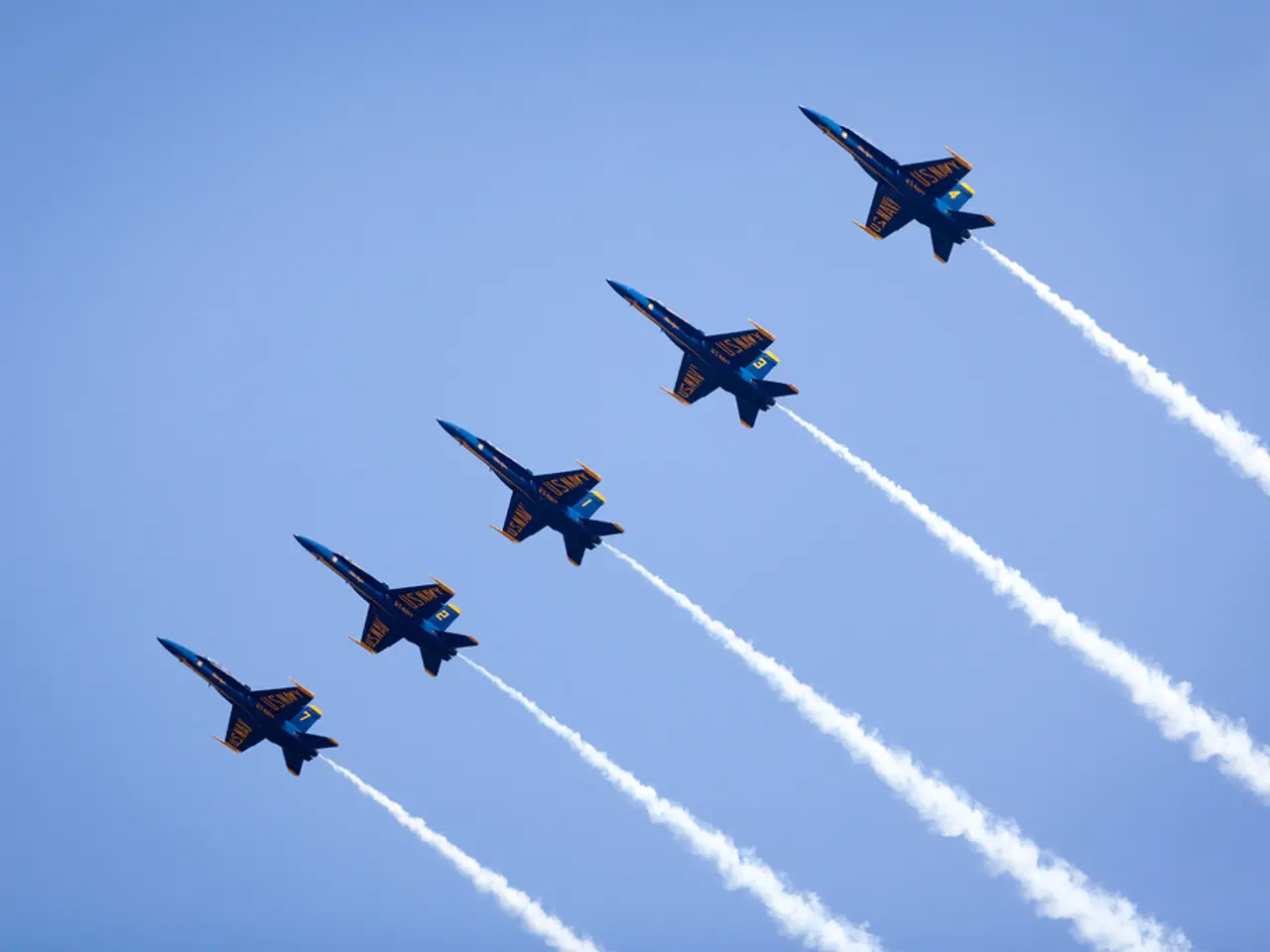Unidentified Russian military aircraft infiltrated Estonia's aerial territory.
In a series of escalating events, Europe has witnessed a string of airspace violations in recent days, prompting strong responses from various countries and international organisations.
Last week, during a Russian airstrike on Ukraine, a large number of drones were reported to have flown into Polish and NATO airspace. The details of the interception manoeuvre were initially unclear, but it is known that some of these drones were shot down by the Polish air force and other NATO allies for the first time.
The Italian air force, in particular, deployed F-35 fighter jets during the interception. This marked Italy's contribution to securing the Baltic airspace, a responsibility shared among NATO allies as the countries bordering Russia (Estonia, Latvia, and Lithuania) do not have their own fighter jets.
This incident was not an isolated occurrence. Russia's MIG-31 fighter jets violated Estonia's airspace near the Baltic Sea island of Vaindloo on a specific date and time, marking the third violation of EU airspace in a few days.
The Estonian Foreign Minister, Margus Tsahkna, described the violation as "unprecedentedly brazen," and the Estonian army announced the violation in Tallinn. In response, the Estonian Foreign Ministry summoned the charge d'affaires of the Russian embassy over the incident and handed over a note of protest.
Not only has Europe been affected, but the incidents have also sparked concern globally. EU Council President António Costa announced that European heads of state and government would discuss a joint response at a meeting in Copenhagen at the beginning of October.
In a show of solidarity, EU Commission President Ursula von der Leyen announced that the EU would respond resolutely to any provocation. Jeanne Dillschneider, Member of the German Bundestag, also called for the gaps in air defense to be closed, emphasising that open skies should not become an open flank of security.
Kaja Kallas, EU High Representative for Foreign Affairs, described the airspace violation as an "extremely dangerous provocation." She further emphasised that these violations are further exacerbating tensions in the region.
As the situation continues to unfold, it is clear that Europe is facing a critical moment. The need for a swift and unified response is paramount to maintain peace and security in the region.
Read also:
- United States tariffs pose a threat to India, necessitating the recruitment of adept negotiators or strategists, similar to those who had influenced Trump's decisions.
- Weekly happenings in the German Federal Parliament (Bundestag)
- Southwest region's most popular posts, accompanied by an inquiry:
- Discussion between Putin and Trump in Alaska could potentially overshadow Ukraine's concerns








